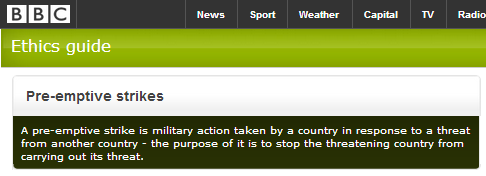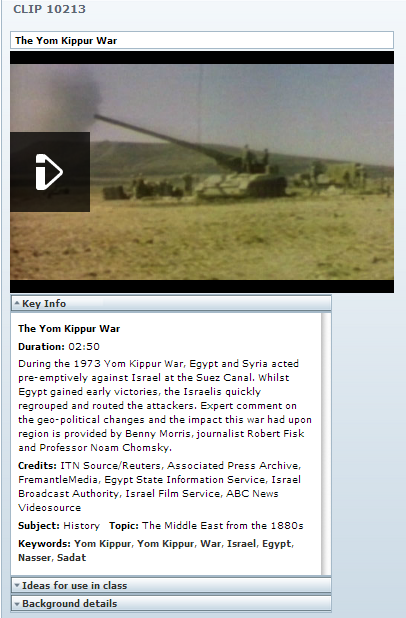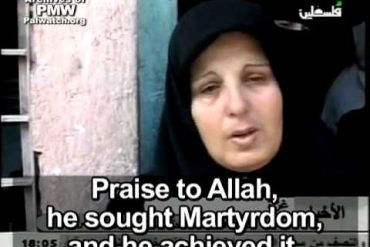From the Oxford dictionary:
From the BBC’s Ethics guide (in its ‘Religion and Ethics’ section):
In other words, a military action can only be defined as pre-emptive if there is concrete evidence of the fact that the other side intends to attack.
Consider then the statement below which appears in the section titled “The Middle East from the 1880s” on the BBC’s ‘Learning Zone’ website: supposedly a resource for secondary school educators.
“During the 1973 Yom Kippur War, Egypt and Syria acted pre-emptively against Israel at the Suez Canal.” [emphasis added]
Beyond the rather obvious fact that Syrian forces were nowhere near the Suez Canal at the time, the description of ‘Operation Badr’ as a pre-emptive action is clearly inaccurate. The Israeli government had not ordered a general mobilization of reserve forces during the build-up to the Egyptian and Syrian surprise attack and the US had received confirmation from Golda Meir that no pre-emptive Israeli strike would take place.
So why would the BBC present such an inaccurate and obviously politically motivated picture of the start of the Yom Kippur war as a resource for teachers? The clue to that perhaps comes in the form of the personalities the BBC chooses as sources for its information.
“Expert comment on the geo-political changes and the impact this war had upon region is provided by Benny Morris, journalist Robert Fisk and Professor Noam Chomsky.” [emphasis added]
The BBC’s previous ‘Key Terms’ guide stated:
“MIDDLE EAST EXPERT”
“Some “experts” may have a history of sympathising with one cause or another even if they have no overt affiliation.
It is preferable, where time and space allow, to provide a lengthier indication of the contributor’s views on past issues so that the audience might calibrate his or her statements for themselves.
In all reporting we should avoid generalisations, bland descriptions and loose phrases which in fact tell us little about a contributor or event. The phrase “Middle East expert” implies the BBC thinks this person’s views have weight and independence. If we can defend that judgement – that’s fine. If not it may be better to avoid the phrase.
Overall, we should seek a precise description – for example, what job does this person hold? Who employs them? Where do they stand in the debate?”
Clearly in the cases of both Chomsky and Fisk, such background on the political motivations behind their “expert comment” (as the BBC describes it) would be essential information for any teacher searching for accurate and impartial information.







